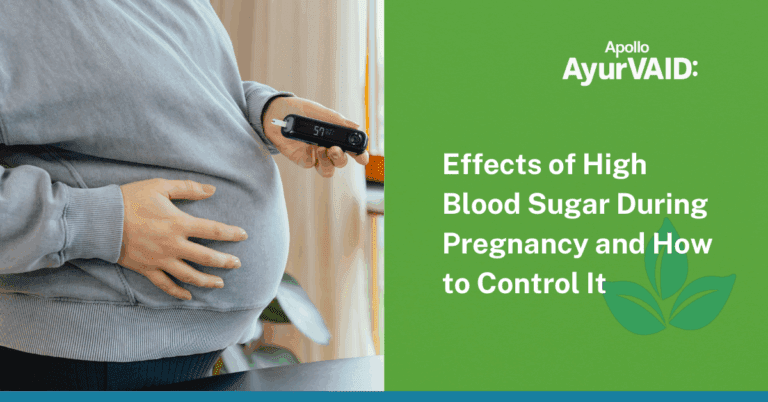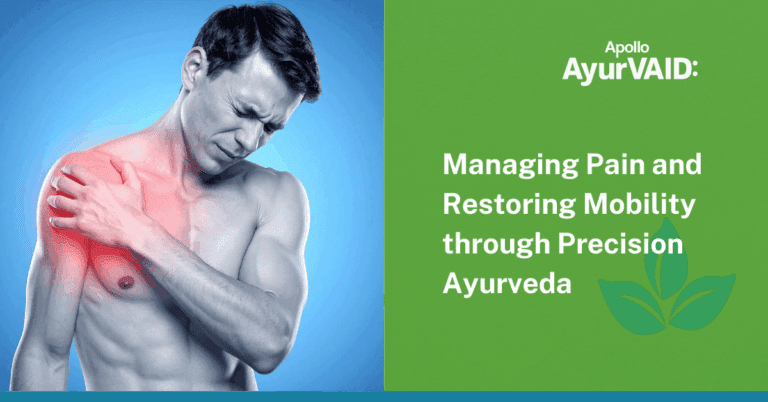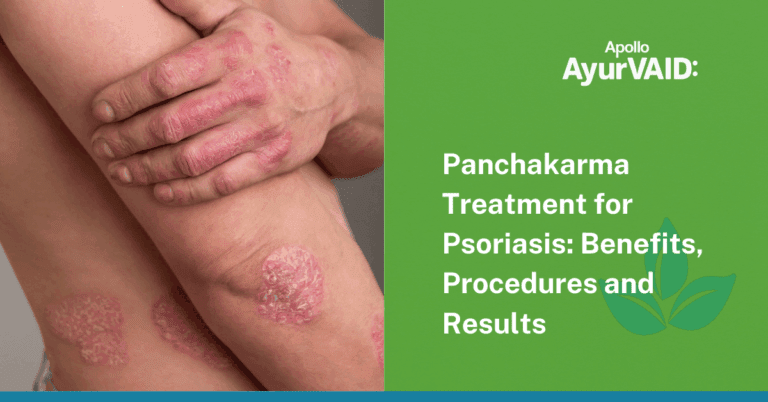Introduction
Parkinson’s disease is a progressive neurodegenerative condition that affects the brain functioning gradually along with an individual’s ability to move. It is caused by damage in brain cells producing dopamine, which is a chemical that is involved in the control of movement. The classic motor symptoms are tremors, slow movement, and muscle rigidity. However, they may have non-motor symptoms, including problems with sleep, changes in mood such as depression, and slight changes in cognition. Early diagnosis and treatment are important to improve the quality of life. The patient experiences continuous tremors while performing daily activities and difficulty in maintaining proper body balance. Certain PD diagnoses can lead to emotional tolls on the patient with their family and friends.
According to Ayurveda, Parkinson’s disease (PD) is considered “Kampavata”—a manifestation of an imbalance of Vata Dosha predominantly (and Kapha dosha in some cases). Chala Guna of Vata, which is responsible for movements, aggravates due to age factors, food, and lifestyle factors. This brings about exaggerated movements of the body parts. With each tremor, stiffness, and struggle to move, the activity of daily life becomes a constant challenge. Ayurveda imparts hope into the lives of individuals diagnosed and helps them keep living well with integrative treatment modalities and rehabilitation programs.
In this blog, we will throw insights into managing Parkinson’s through Ayurvedic wisdom, including food, lifestyle, and other modalities to improve mobility, stability, and quality of life.

Ayurveda Treatment Including Panchakarma
Kampavata is primarily associated with Vata dosha imbalance, causing movement disruption, neurological instability, and deterioration of nerve functions. Management strategies include reducing Vata aggravation, improving neurological health, and enhancing cellular regeneration. Formulations containing herbs that have neuroprotective action and help manage tremors and reduce muscle stiffness are prescribed.
Abhyanga (oiling therapy), Shirodhara (pouring medicated oil over the forehead), Udvartana (medicated powder therapy), and Nasya (instillation of medicated oil into the nostril) are administered. Shodhana (purification) procedures like Vasti (enema), Vamana (therapeutic emesis), and Virechana (therapeutic purgation) are also prescribed based on the condition of the patient and dosha involvement. These measures bring about dosha balance, reset metabolic processes, and support cellular rejuvenation.
Dietary Management of Parkinson's Disease
The following dietary changes are prescribed to improve quality of life and prevent disease progression by checking Vata vitiation.
- Following a timely meal eases digestion and metabolism.
- Having freshly prepared warm food helps to maintain the dosha balance.
- Churned buttermilk, boiled and lukewarm water to drink, and consuming cooked vegetables aid in quick digestion of the food and easy assimilation.
- Including healthy fats such as ghee in your diet enhances memory.
AVOID
- Street food, protein-rich food, and non-vegetarian food.
- Deep-fried, salty, spicy, canned, and processed food.
- Curd, paneer, cheese, sweets, and sour food.
- Reduce the use of potatoes, cauliflower, green peas, rajma, channa, peanuts, and maida products.
Physical Rehabilitation and Yoga
Improvements in physical outcomes can greatly benefit patients with Parkinson’s disease (PD) via physical rehabilitation. It improves balance, mobility, and functional gait; reduces fall risk; and improves motor symptoms.
Combining mindful yoga training with exercise improves emotional regulation and health-related quality of life, as well as physiological and symptomatic control. Better engagement in daily activities and overall positive emotional well-being are also promoted through this. Yoga poses like Uttanasana (Forward Bend), Kurmasana (Tortoise Pose), Ustrasana (Camel Pose), Dhanurasana (Bow Pose), etc., increase flexibility, balance, and coordination; reduce the risk of falls; and improve overall well-being.

Lifestyle Optimisation
Modifying the lifestyle has a major impact on the people suffering from PD. Following are a few regimens recommended for people suffering from Parkinson’s Disease:
- Regular exercise is essential for strengthening the muscles.
- A balanced diet with light and easily digestible food to aid metabolism. • Drink sufficient water to maintain proper hydration.
- Use assistive devices to prevent falling.
- Establish consistent daily routines and adaptive techniques.
- Maintain a regular sleep schedule and practice yoga.
- Seek counselling or support groups when necessary.
- Regular neurological check-ups and medication management
- Open communication with healthcare providers
- Remove tripping hazards, install handrails, and improve lighting in the home.
Avoiding Causative Factors
As per Ayurveda, avoiding causative factors is the core treatment principle. The following health management strategy can be adopted to prevent disease progression and manage the symptoms effectively.
- Regular health check-ups and genetic counselling
- Environmental toxin avoidance, including welding fumes and solvents
- Mental and cognitive health maintenance through stress management, continuous learning, mindfulness, and adequate sleep
- Metabolic and hormonal balance, including healthy weight, blood sugar management, and keeping a check on inflammatory markers
- Environmental considerations, including air quality, radiation reduction, ergonomic living, stress management, and work-life balance optimisation
Psychological and Emotional Support
People with PD need both psychological and emotional support because of the link between the symptoms of Parkinson’s disease (PD) and mental health.
- Emotional support, particularly through counselling by family members or health care providers, can reduce suffering, increase general well-being, and improve psychological quality of life.
- Patients can be helped to feel less stressed using cognitive behavioural therapy (CBT). It helps them to develop psychological and emotional support and to improve the living standards of both those who have PD and those who care for them.
- In addition, Ayurveda medicines with neuroprotective and mood-enhancing properties can be prescribed to reduce stress and anxiety and improve motor symptoms.
- Meditation, yoga, and shirodhara will also provide psychological and emotional support.
Neuroprotective Therapies
Ayurveda treatments can control the symptoms, aid in the moderation of the disease, and enhance the general neurological condition. It incorporates some specific therapies like Nasya and Shirodhara, which help revitalise the nervous system as well as cognitive and motor functions. Medicines that are proven to support neuronal health, relieve oxidative stress, and maintain the levels of dopamine are also prescribed as a part of a comprehensive treatment plan.
Conclusion
Parkinson’s disease is treated comprehensively by Ayurveda. The integrative approach involves balancing the doshas of the body through Panchakarma therapies, dietary changes for promoting neurological health, yoga and physical rehabilitation for increasing mobility, lifestyle optimisation strategies, psycho-emotional support, and neuroprotective therapies for promoting the health of the nervous system. The Ayurveda view of healing is distinct for its all-encompassing understanding of healing, not just physical symptoms, but also mental, emotional, and lifestyle factors. The aim is to improve quality of life, control symptoms, slow disease progression, and give patients the courage and strength to maintain independence.
References
- Borah, A et al. (2017). Neuroprotective Effect of Ayurvedic Preparations and Natural Products on Parkinson’s Disease. https://doi.org/10.1002/9783527803781.CH5
- Daalen, J M J et al. (2022). Lifestyle Interventions for the Prevention of Parkinson Disease. Neurology, 99, 42 – 51. https://doi.org/10.1212/WNL.0000000000200787
- Dharmani, G, Bhardwaj, D (2022). Management of Parkinson’s disease through Ayurvedic approach: A case report. Journal of Ayurveda Case Reports, 5, 183 – 186. https://doi.org/10.4103/jacr.jacr_116_21
- Evatt, M (2007). Nutritional therapies in Parkinson’s disease. Current Treatment Options in Neurology, 9, 198-204. https://doi.org/10.1007/BF02938409
- Kalampokini, S et al. (2019). Nonpharmacological Modulation of Chronic Inflammation in Parkinson’s Disease: Role of Diet Interventions. Parkinson’s Disease, 2019. https://doi.org/10.1155/2019/7535472






